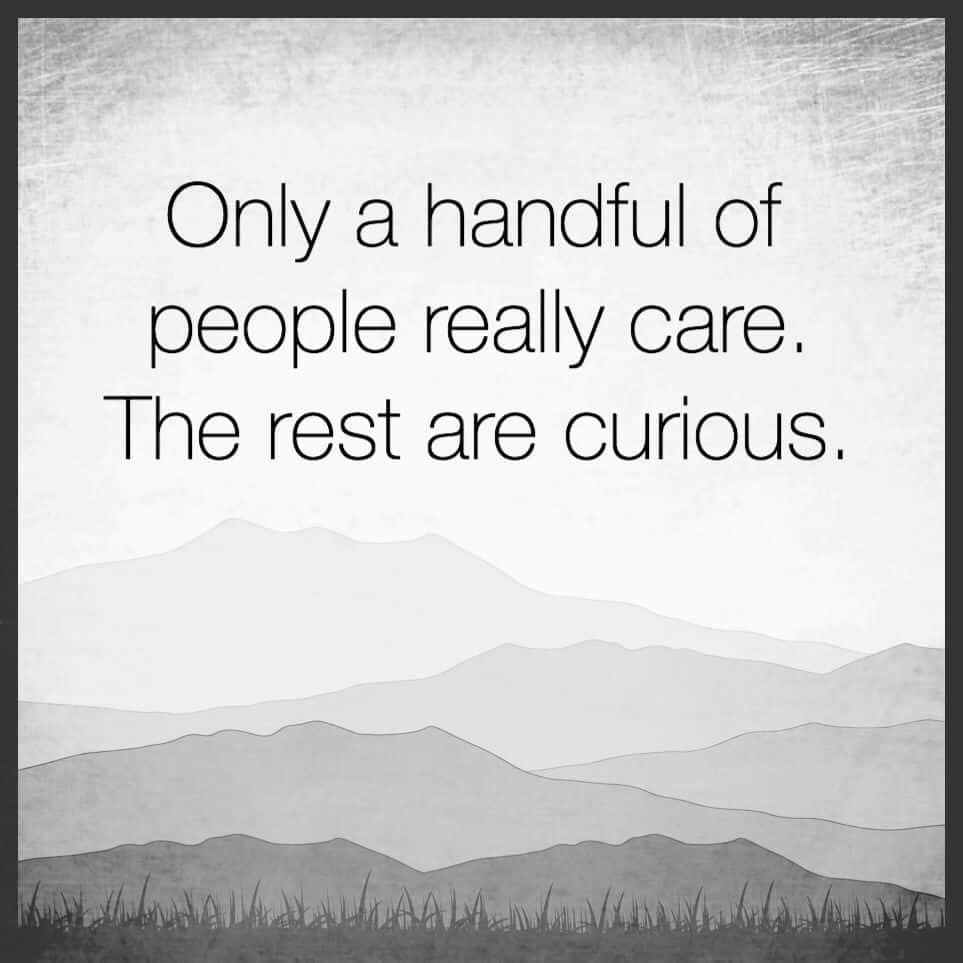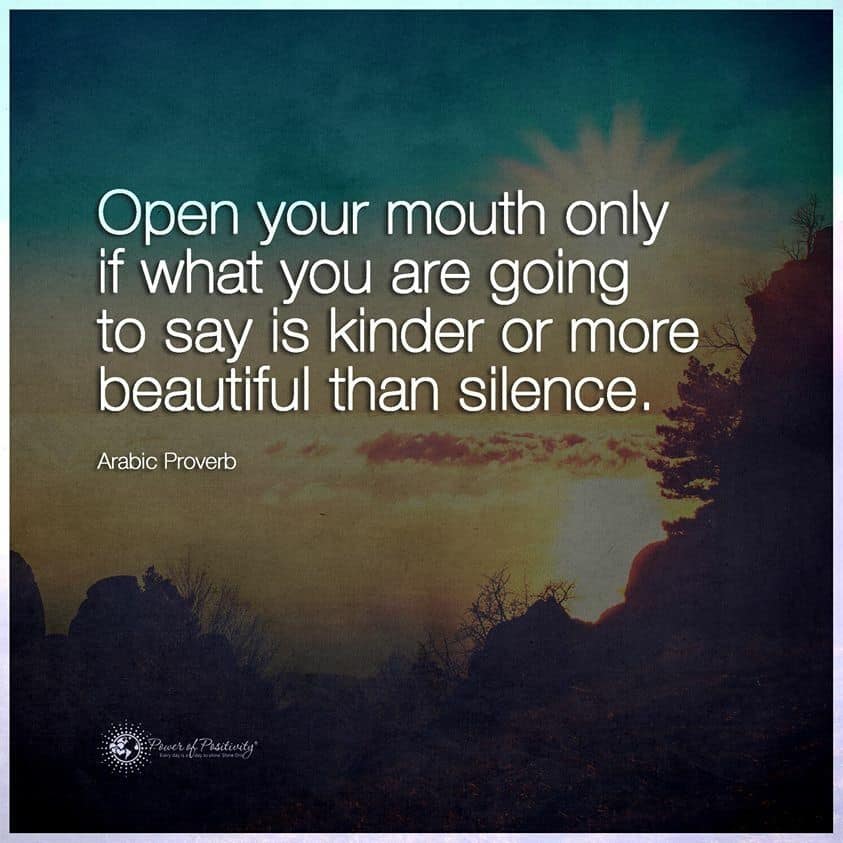Sometimes people share TMI, and sometimes that person might be you. You may not even recognize that you are sharing too much, but there are signs you can look for. Knowing the signs is the first step to addressing the issue, and it’s easier to stop than you think.
Those who share too much information often tell others things that would have been better left unsaid. When you share too much, it is a sign of unhealthy emotional boundaries and can be bad for your relationships. While some of your friends might love it, most will not, and strangers will find it awkward.
Luckily, after reading these signs of sharing TMI, you can recognize if you are guilty of this. Plus, you will learn how to stop oversharing.
Signs You’re Sharing TMI (and How to Stop Oversharing)
Do you think you might be sharing too much information? Here are a few signs–and tips on how to stop.
1. You Overshare with People You Just Met
 Before you share intimate details of your life with someone, you should learn if you can trust them or not. If you share these details before establishing trust, you are likely oversharing. Even if you get good vibes from the person, it’s not wise to share information quickly.
Before you share intimate details of your life with someone, you should learn if you can trust them or not. If you share these details before establishing trust, you are likely oversharing. Even if you get good vibes from the person, it’s not wise to share information quickly.
Not only can oversharing be risky because of the trust aspect, but it can also stop your new relationship. If you share TMI with a new person in your life, it might make them avoid you in the future. It will cause them to feel awkward around you, which will result in the relationship not going anywhere.
2. You Stop Hearing from Your Friends as Often, and No One Tells You Anything Anymore
If your friends know that you overshare, they will stop telling you things about their life. They will be worried that you will tell their information to others. Plus, if you constantly bombard them with your problems, it can cause negativity they won’t want to experience every time.
If you notice that your friends don’t reach out as often and cut calls short, it’s a good sign you are oversharing. Reel it in if you get this feeling, and you might find that they want to talk again.
Also, please pay attention to how much you know about them compared to how much they know about you. If they know much more about you, then it’s another sign you should reel it in.
Sometimes oversharing can push your friends away because they’re worried about what you will post on social media. While social media oversharing is a whole other topic, it is worth mentioning here, as well. If your friends worry that you’ll post unflattering pictures or share their location, they may not invite you places anymore.
3. You Impulsively Post on Social Media
Social media is probably the place it’s easiest to overshare stories and information. It’s easy to type a post in the heat of a moment and share private information with hundreds of people. This results in further negative consequences, judgment, and painful reactions from others.
If you find yourself posting every detail of your life, you might be guilty of this. You may post mundane things like what you are eating or personal things like feuds with your family. When this is the case, and you find yourself sharing everything, you should try to cut back.
Certain topics should be off-limits to the majority of your social media friends list. These topics include the following:
- difficulties getting pregnant
- the details of a pending divorce
- negativity after a job loss
- negative comments about your job or employer
- details of a feud with a friend or family member
- information about your romantic relationship
Keep in mind that posting about your job or certain activities in your life can cost you your career. Likewise, posting information about personal feuds could cause you to lose that relationship forever. Not everyone wants personal details on the internet for everyone to read.
To combat this issue, give yourself time to reflect and assess the situation before posting about it. You can also make a strict rule for yourself that you can’t post about certain topics at all. Or, if you can’t help but post, change your settings so only your closest friends can see these posts.
4. You Hate Silence and Are Always Trying to Fill It
If silence is awkward for you or you are always looking to fill a silence, you might be oversharing. Oftentimes, this will result in you telling a personal story about yourself. The other person would have probably rather continued the silence, however.
5. You Always Try to Get People to Take Your Side
When you disagree with someone, you shouldn’t try to bring other people into it. If you do, you are probably oversharing with them. This can leave your friends in uncomfortable situations as they won’t want to pick sides or involve themselves at all.
This is especially true if it is a situation involving a mutual friend. If they feel like you are forcing them to choose sides, they’ll likely shut you out.
When it is a family conflict you try to go to them about, it causes other discomforts. They might be worried that whatever they say will be used against them when you are no longer angry. Or, they might not want to hear about it or get involved.
Don’t leave your friend in an uncomfortable position because you need to vent. If the disagreement is that serious, see a professional instead.
 6. You Need Someone Else’s Opinion on Everything
6. You Need Someone Else’s Opinion on Everything
If you can’t decide without someone else weighing in, you probably share too much. When you are trying on clothes and have to send every outfit to your friend, you should stop. Learn to make decisions on your own because you are the only person the decisions affect anyway.
This is probably the easiest form of oversharing to stop. Quit sending messages out to everyone when you need to make a decision. Instead, make it on your own and go about your day.
7. You Sometimes Forget to Consider the Privacy of Others
It was mentioned before that your friends might not want their photos or location shared online. The same goes for other parts of their lives, as well, and they may not want them shared at all.
When you tell someone else about a conversation you had with the friend, this may even make them uncomfortable. Many people don’t want anyone talking about them when they aren’t present, which involves even basic information. It’s a desire that is understandable since there is no reason for strangers (or acquaintances) to know their life details.
8. Everyone Knows the Details of Your Romantic Relationship
If your friends and family members know all the details of your relationship, it’s a key sign that you are sharing TMI. Even worse, however, is when everyone on your social media friends list knows the details. This is true whether you are sharing happy, loving information or if it’s negative and dramatic.
Those are details you should keep to yourself. First, because it is no one else’s business, especially not random people online. You have to keep in mind that your significant other may feel uncomfortable about it, as well.
Secondly, if you tell your family and friends every time you are annoyed or mad, they may negatively begin viewing your partner. This will only cause further problems if you decide to stay in or return to that relationship.
9. You Share Information Without Considering the Other Person’s Feelings
If you constantly share information with a friend about your newborn baby, this may seem fine to you. However, if that friend is struggling to become pregnant, this may be considered oversharing and insensitive. While you may mean no harm, it can still hurt them, and they’ll likely be wishing you would stop talking.
This is true for all situations. Consider what the other person is going through or what their experiences have been before you speak. Don’t share a story that may upset them or make them uncomfortable.
You have to consider the other person’s feelings even if they wouldn’t become emotionally upset by your sharing, too, however. Friends who don’t have children or aren’t married may not always enjoy hearing your parenting or marriage stories. While they may love to hear it sometimes, if that’s all you talk about, you’re probably oversharing.
10. No Topic is Off Limits, and You Never Consider the Location
If you discuss any topic, including your daily diet, your political views, or your childhood traumas, you should reel it in. Most people don’t want to know all of that, and they may start tuning you out.
The location you are in when you share matters, too. Sharing private information at work is not only unprofessional, but it can have consequences, too. Plus, it can make your co-workers uncomfortable.
Unless you spend quality time outside of work with someone, avoid telling them anything personal. Then, limit the sharing to a time when you are together off the clock.
 Final Thoughts on Signs You’re Sharing TMI (and How to Stop)
Final Thoughts on Signs You’re Sharing TMI (and How to Stop)
Confiding in your best friends is fine and even encouraged, but sharing TMI is not as acceptable. You have to make sure you aren’t overloading them with your negativity and your problems. Plus, you have to make sure you aren’t divulging information that someone else wouldn’t want you to.
The simple solution is to be mindful of what you share with others and what you post on social media. Always ask before you share things on social media, and always give yourself time to reflect before posting. As you can see, once you know that sharing TMI is a problem, it’s easy to find the solution.





















